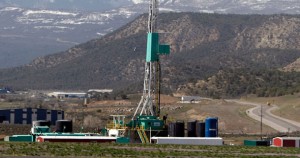News articles, however well-meaning, sometimes lead readers to inaccurate conclusions. Occasionally, the headline is to blame; often, the reporter, who cannot be expected to be an expert on every conceivable topic, lacks the time and resources to dig deeply into the story.
Such is likely the case with a recent article called Chemicals Used in “Fracking” Can Disrupt Human Hormone Function, MU Researchers Say. The article, published in several newspapers, noted that more than 100 chemicals used in fracking are “known or suspected endocrine disrupting chemicals” (EDCs) that have been linked to health concerns. But several reporters who covered the story apparently failed to read the University of Missouri study carefully and to recognize its limitations.
 Perhaps the worst journalistic offense involving the MU study occurred in a recent post on National Geographic’s website. The author, Sandra Postel, writes that the researchers found evidence of EDCs in water near fracking sites in Western Colorado (my home), leading her to issue the following caution: “The new findings add urgency to calls for moratoriums on fracking,” she asserts, “and regulations and monitoring put in place to safeguard water supplies and public health.”
Perhaps the worst journalistic offense involving the MU study occurred in a recent post on National Geographic’s website. The author, Sandra Postel, writes that the researchers found evidence of EDCs in water near fracking sites in Western Colorado (my home), leading her to issue the following caution: “The new findings add urgency to calls for moratoriums on fracking,” she asserts, “and regulations and monitoring put in place to safeguard water supplies and public health.”
There’s little doubt that Postel’s article rang alarm bells among fracking opponents, but the study’s findings do not justify her call for a moratorium. For example, the Missouri researchers did not establish any link between fracking and the presence of the EDCs other than that both were found in the same state. No chemical identification tests were conducted to determine whether the EDCs found in the Colorado River were related to anything used in the energy business in that area.
In fact, there is nothing unusual about finding EDCs in the Colorado River. As the EPA’s website explains, human hormones, pharmaceuticals, household detergents and other products in effluent from licensed sewage plants deposit EDCs in surface water every day. Nor are they unusual or dangerous at the levels found in the MU paper.
A wastewater treatment specialist commenting on Postel’s article wrote that the levels were “between nondetectable and the minimum recommended acceptable levels as researched by the EPA.” As he explained, “The parts per billion figures listed in the study … are way below the estimated EDCs generated by discharge from Waste Treatment Facilities caused by people throwing prescription medications down their toilets at home.”
Second, Postel’s article attempts to bestow credibility on the “Halliburton loophole,” a bizarre claim that former Vice President Dick Cheney and his oil industry friends exempted fracking from the Safe Drinking Water Act (SDWA). But Postel goes further: She asserts that in the absence of federal regulations, “states have been slow to fill the regulatory gap.”
She is wrong on both counts. There is no Halliburton loophole making fracking “exempt” from the SDWA. This important law, first passed in 1974 and updated several times, has never contained language applicable to fracking, making it impossible to exempt from it something that was never in it. Fracking is regulated under many other federal and state statutes, including strict regulation in Colorado.
In fact, a 2009 study by the Ground Water Protection Council found that across the nation, state regulations are “environmentally proactive and preventive.” So much so that the council warned that new “national regulations on oil and gas exploration and production would be costly to the states, duplicative of state regulation, and ultimately ineffective because such regulations would be too far removed from field operations.”
By ignoring these facts, National Geographic and the newspapers that ran this story have done a disservice to their readers. Such articles fan the flames of fracking fear-mongering but provide nothing of substance to the nation’s vitally important energy policy debate.
When conducted carefully in compliance with existing regulations, fracking provides an effective way to develop America’s own energy resources and increase our energy independence. It also is building a stronger economy throughout the nation.
A slightly different version of this piece originally appeared in the Columbia (MO) Herald Tribnune January 21, and in the Greeley (CO) Tribune February 3.




Comments on this entry are closed.